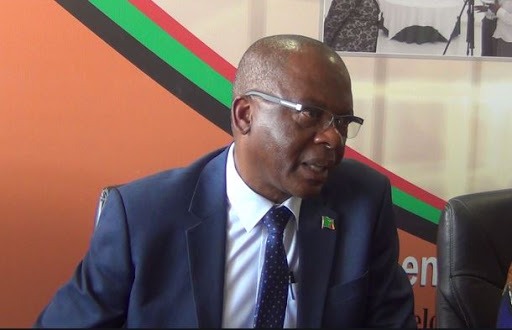Energy Minister says Government has prioritized the energy sector as a key driver for socio-economic development and a tool in addressing developmental inequalities in rural areas.
Speaking when he officially opened the Renewable Energy Conference, spearheaded by the French-Zambian Chamber of Commerce (FZCC), Matthew Nkhuwa said it is for this reason that government is committed to creating an enabling environment that encourages private sector investments in energy infrastructure as evidenced by the approval of the National Energy Policy of 2019 which ushered the enactment of the Electricity Act Number 11 of 2019 and the Energy Regulation Act Number 12 of 2019.
Mr Nkhuwa stated that the legislative and regulatory framework is envisioned to be responsive to the ever increasing energy needs of the economy as it opens up the Power Market in order to ensure sustainable investments in the energy sector to sustain economic growth, raise living standards, and reduce poverty.
He noted that Zambia’s electricity generation mix is predominantly hydro, accounting for 80.45 percent of installed capacity as of 2019, adding that the remainder of the generation mix comprises 10.06 percent of coal, 3.69 percent of Heavy Fuel Oil, 2.80 percent diesel and 2.99 percent of solar.
“Zambia’s demand for electricity stands at 2,300 megawatts, but the sector is only able to produce 1,490 megawatts, thus giving a deficit of 810 megawatts,” he said.
“This situation has resulted from limited investment over the years and the deficit has been worsened by the effects of climate change on the availability of water, considering that Zambia is highly dependent on hydro-power.”
And speaking at the same event Zambia’s Ambassador to France said the mission will continue to call upon French investors to come and invest in the country’s Renewable Energy.
Dr Christine Kaseba Sata said French companies are already operating in Zambia, but there is need for more to come on board and invest in the sector.
Ambassador Kaseba however lamented that the advent of Covid-19 has delayed the investment by French companies in the country.
“There is need concerted efforts from all stakeholders in the country to work together, in a bid to resolve the energy challenges so as to end Covid-19 difficulties,” she said.
Ambassador Kaseba added that there cannot be the best time to discuss energy issues in the country than now, when Southern Africa is grappling with effects of climate change.
Meanwhile Ambassador of the European Union Delegation to Zambia and the Common Market for Eastern and Southern (COMESA) Jacek Jankowski has expressed concern over the low penetration of solar energy in the country.
Mr Jankowski points out the high cost of capital and lack of capacity by most investors as factors limiting investments in the solar energy sector.






